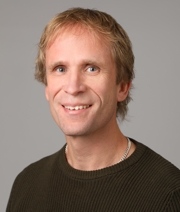
Valtteri Hongisto is the research group leader of Built Environment Research Group in Turku University of Applied Sciences. Additionally, he has docent positions both in Aalto University (noise control) and University of Turku (Environmental psychology), and he acts as a university lecturer in Aalto University and Tampere University. VH has published 65 peer-reviewed journal papers, more than 150 other scientific articles, and supervised six doctoral students. VH graduated in 1993 (physics, University of Turku). Hongisto started his career in 1992 in Finnish Institute of Occupational Health having a laboratory space without fixed purpose and personnel. It was developed to an accredited test laboratory of airborne sound insulation and absorption. His main interests were these laboratory tests and occupational noise control until his doctorate in 2000 (acoustics, Aalto University). Since 2001, room acoustics of open-plan offices became another permanent research field. Research fields of environmental psychology involving field surveys were begun in 2001 to address the benefits of office noise control. The first laboratory experiment on cognitive psychology regarding the same issue was conducted in 2004. In 2006, Hongisto started as a university lecturer in Aalto University. Teaching about noise effects inspired to study the effects of neighbour, road traffic, and wind turbine noise in apartments in 2012. This led also to psychoacoustic laboratory research concerning the annoyance of living and specific environmental sounds. In 2016, the group moved to Turku University of Applied Sciences, who built new and totally silent building acoustics and psychophysics laboratories in 2020. The labs enabled the testing of impact sound insulation. The current projects of the 10-person acoustics group deal with perception of timber floor sound insulation, and the effects of room acoustic design on workers in activity-based offices. Lately, VH has been active in developing the ISO 3382-3 and ISO 23351-1 standards. Daily work has always been versatile involving public-funded scientific research, consultation services to private companies, management, and teaching. Planned future expansions may involve, e.g., open schools.